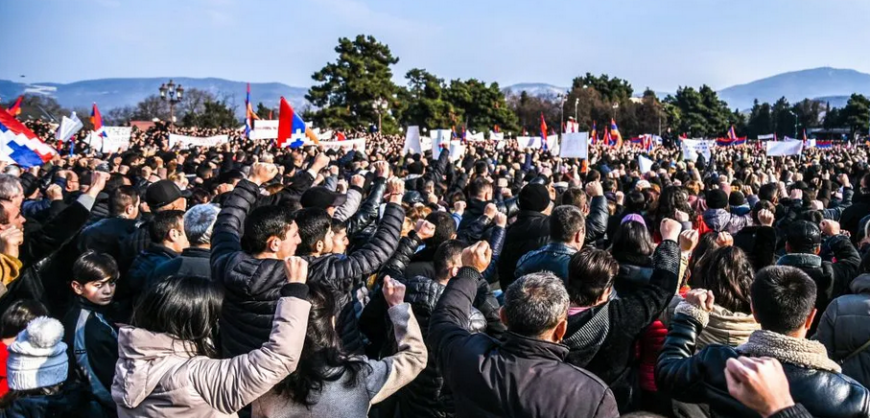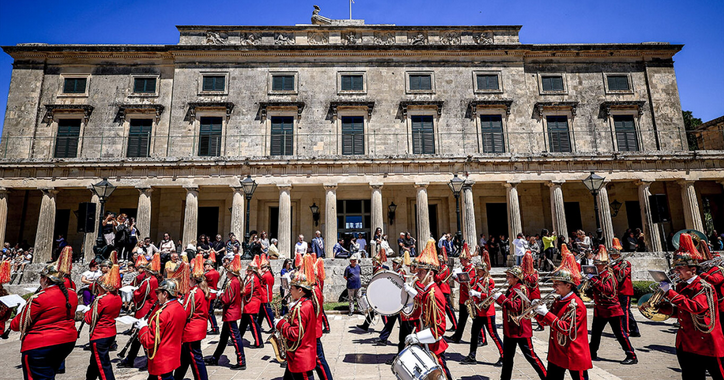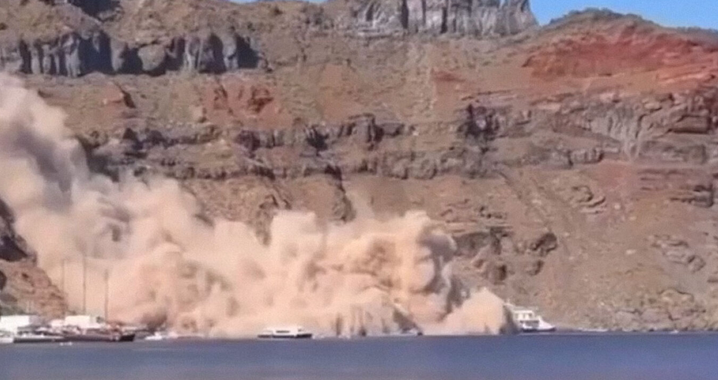For the past five weeks, the region of Nagorno-Karabakh or Artsakh, sandwiched between Azerbaijan and Armenia, has been blockaded by Azerbaijan. As much of the world celebrated Christmas and New Year, over 120,000 Armenian residents of the region—the oldest continuously inhabited Armenian homeland, dotted with Armenian churches and monasteries and monuments predating the spread of Christianity to Europe by decades—were cut off from the world.
A group of Azerbaijani citizens identifying as “environmental activists” barricaded the Lachin corridor, a mountainous road that serves as the only path between Armenia and Nagorno-Karabakh, since December 12. The flow of food and medicine fell to a trickle before the supplies essential for the continuation of normal life gradually disappeared altogether. A place that once received 400 tons of food and medical supplies daily now barely receives a few carloads on a good day. Hospitals have indefinitely put surgeries on hold. Children are going hungry. There is an acute shortage of fuel as temperatures drop to below -4°C, and families are burning scraps to heat their homes.
US government examining over 500 UFO reports
Armenians, a people who endured a protracted genocide under the Ottoman Empire before being exposed to Soviet autocratic rule in the 20th century, are being subjected to collective punishment in the 21st century with the intent of driving them out of their home.
Nagorno-Karabakh, a historically Armenian territory, is known to Armenians as Artsakh. Despite its history and demography, it was handed to Soviet Azerbaijan in 1921 by Joseph Stalin, who implemented the imperial method of disrupting cohesive national and ethnic communities to keep diverse populations in check. In 1988, the people of Artsakh voted overwhelmingly in a referendum to dissolve Moscow’s artificial cartography, secede from Soviet Azerbaijan and assert their Armenian identity.
Read more: TIME






































